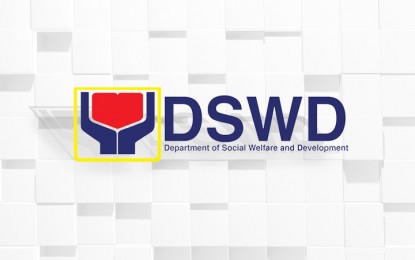
MANILA – The conditionalities for the First 1000 Days (F1KD) have been inked for approval as the nutrition-specific additional grant gears toward full implementation in 2025, a senior official of the Department of Social Welfare and Development (DSWD) said on Thursday.
Undersecretary Vilma Cabrera of the DSWD’s Pantawid Pamilyang Pilipino Program (4Ps) said the F1KD cash grant is an additional financial support under the 4Ps which was earlier proposed by DSWD Secretary Rex Gatchalian to President Ferdinand R. Marcos Jr.
“While drafting the conditionalities of F1KD grants, on top of our priority is to anchor the conditions to the best interest of the beneficiaries. We want to make sure that it would augment their health-seeking behavior, and lead to favorable health outcomes,” she said.
She said the FK1D cash grant, which aims to help female 4Ps beneficiaries who are pregnant and households that have children aged 0 to 2, will be added on top of the PHP750 monthly health grants a 4Ps household-beneficiary receives in 12 months.
Another purpose of the F1KD grant is to capacitate the family with improved access to healthcare and nutrition services during the critical first 1,000 days of child development, Cabrera said..
To secure their eligibility, they are also required to register or update their household profile through their City/ Municipal Link, she said.
This additional health-specific benefit, however, also comes with sets of conditionalities which Gatchalian earlier ordered the 4Ps-National Program Management Office (NPMO) to draft.
Now furnished and approved, these conditions have been laid out based on guidelines stipulated in Republic Act 11148 or the "Kalusugan at Nutrisyon ng Mag-Nanay Act" and the Department of Health’s (DOH) protocols.
“These conditions are segmented to the life stages of the child throughout their first 1,000 days, each ensuring that necessary health interventions are accessed and given to the child and their mother,” Cabrera said.
Conditions before and during childbirth
While the beneficiary is carrying the child in her womb, the conditions are crafted to ensure that her maternal health is prioritized as experience on this stage lays the groundwork for better health conditions.
Highlighting the importance of neonatal care, the F1KD’s initial condition requires pregnant mothers to complete eight prenatal consultations for the entire duration of their pregnancy.
“These visits will allow the pregnant woman to access needed health interventions. As standard, the beneficiary should also be inoculated with maternal immunization, and must record a regular intake of micronutrient supplements. Their weight and blood pressure also require close monitoring of local health centers,” Cabrera said.
To assure that the childbirth is conducted in the safest way possible, target clients are also enjoined to avail of delivery services from skilled health professionals at the appropriate level of Basic/Comprehensive Emergency Obstetric Care (BEmOC) (CEmOC) services.
“So at least, they can seek the services of midwives and accredited child birth centers. In case that these service providers are out of reach at the time of labor, we still encourage them to be assisted by skilled health personnel to minimize birth complications,” Cabrera said.
Under the postnatal stage, which covers the period after childbirth, the mother adheres to four follow-up visits to the health facility where they gave birth and or as prescribed by DOH protocol.
“Full compliance to needed maternal health and nutrition intervention is of prime concern. We cannot compromise this as the health of the mother is interconnected with the child’s health as well. If the mother is famished and not properly nourished, then it is likely that the baby will not receive ample nutrition for growth and development,” Cabrera said.
Conditions from childbirth to 2 years old
“Following the delivery of the child, we are gradually shifting the focus on the conditions that must be met to look after the health of the new-born,” Cabrera said.
She said upon birth, the infants must receive essential newborn care such as newborn screening, eye prophylaxis, and vitamin K supplementation.
“The infants should also avail routine immunization based on the guidelines of DOH. These include Bacillus Calmette-Guerin (BCG), Diphtheria Pertussis Tetanus (DPT) Vaccine or Oral Polio Vaccine (OPV) as well as vaccination for Hepatitis B,” Cabrera said.
During the first six months of infancy or the first 180 days, the parents are tasked to monitor their infant’s monthly growth and development.
Regular visits to healthcare centers are crucial in this period to supervise the child’s condition and detect early signs of stunted growth or malnutrition.
“This is even more a pressing concern for children who had low weight at birth, those showing signs of stunting or diagnosed with acute malnutrition,” Cabrera said.
From six months until the child turns two years old, priority goes to the access to health and nutrition interventions, as well as oral healthcare services.
The child must also acquire dietary supplementation with age-appropriate, nutrient-rich complementary foods and anthelmintic tablets for deworming.
“They can avail all of this for free in their nearest public hospitals, healthcare centers, and even the government-led mobile clinic and medical missions that regularly calls children from the vulnerable, marginalized communities to avail health and nutrition-specific interventions,” Cabrera said.
She said the conditions must be met by 4Ps households to qualify and continue receiving the grant.
Categorized as an addition to health grants provided to beneficiaries, F1KD aims to improve the recipient’s awareness of the importance of health and nutrition services to the foundational development of their children. (PNA)
